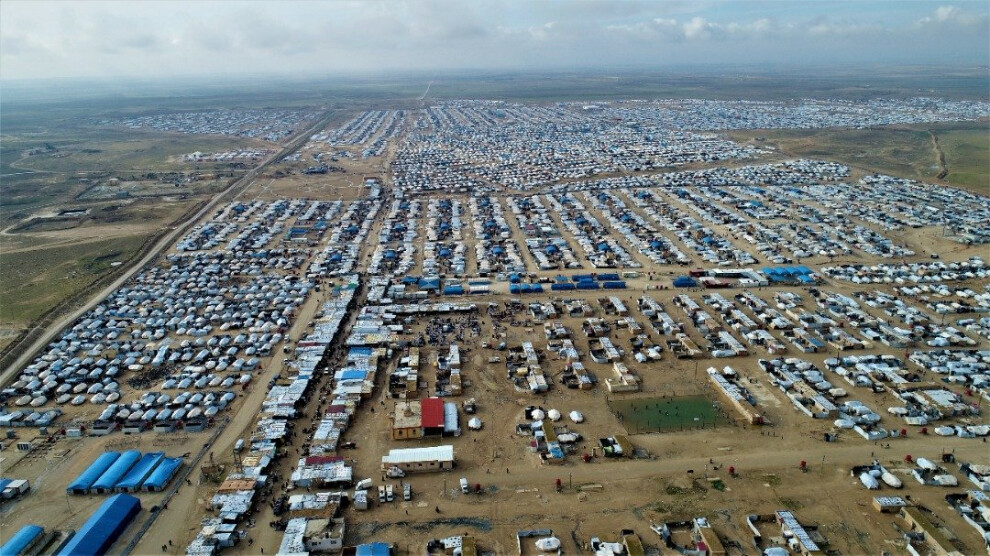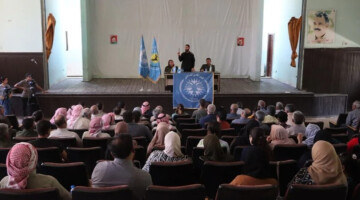Mystery still surrounds the position of the international community in dealing with the file of prisoners and families of ISIS mercenaries in northern and eastern Syria.
The international community provided military support to eliminate ISIS, but it did not supplement this support with another form of support.
After the Syrian Democratic Forces liberated the town of Al-Baghuz in Deir ez-Zor on March 23, 2019, the international community did not provide any tangible assistance to the Autonomous Administration of North and East Syria.
Despite the repeated demands of the Autonomous Administration, the Syrian Democratic Forces (SDF) and various political and social circles in north and east Syria for the necessity of solving the ISIS dilemma, the international community continues to disregard the fears of the people.
The Autonomous Administration has repeated on more than one occasion that ISIS is an international problem. The Autonomous Administration insists on two basic demands, the first of which is the establishment of an international court to prosecute mercenaries, and the second one is the return of mercenary nationals to their countries.
ISIS launched the largest attack on the Al-Sinaa prison on January 20 of this year since the victory over it was declared by the Syrian Democratic Forces in 2019.
On the 28th of last March, cells belonging to ISIS mercenaries attacked an internal security forces patrol in Al-Hol camp, south of Al-Hasakah canton.
The number of ISIS prisoners is estimated at 20,000 from 53 different nationalities.
Speaking to ANHA, the politician and head of the office of the Conservative Party in the city of Hasakah, Muhammad Barak, stressed the continued danger of ISIS mercenaries lurking in the prisons and detention camps of ISIS mercenaries, saying: "In the city of Hasaka and al-Hol there are time bombs, where there are prisons for the detention of mercenaries, which hosts thousands of mercenaries. ISIS, and the al-Hol camp, which embraces the women and children of mercenaries.”
A notable of the Al-Sharabain clan, and a member of the notables' body in northern and eastern Syria, Muhammad Al-Obaid, reiterated the same concerns, considering keeping the mercenaries' file pending "a great danger to the peoples of the region and their future," and added, "There are terrorist attacks and the movement of ISIS cells every period, if any. in al-Hol camp or through attempts to target prisons, as happened in al-Sina’a prison in al-Hasakah.”
He added: "In every attack, our military forces and our sons are targeted, in addition to civilians, which negatively affects the stability of the region and constitutes a great financial burden on the Autonomous Administration."
Al-Obeid believes that the international community's freezing of the ISIS file constitutes a source of continuing danger to NE Syria.
The head of the Conservative Party office in the city of al-Hasakah, Muhammad al-Barrak, criticized the international community for ignoring the demands of the Autonomous Administration, saying: "But the international community is silent in front of all these demands."
Al-Barrak called on the international community to take serious action regarding the file of ISIS mercenaries and their families, not to falter and to assume its responsibilities as the people of the region did in defeating the mercenaries geographically.
For his part, the head of the Religious Council in al-Hasakah canton, Muhammad Rashid Abdul Aziz, called on the international community to find a solution to the dilemma of ISIS mercenaries and their families, saying: "The only solution is either to return them to their countries or try them in international courts in northern and eastern Syria, and to support the Autonomous Administration with financial support. and morale in order to maintain the security of the country, and to combat the cells.”













